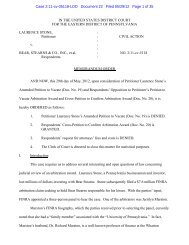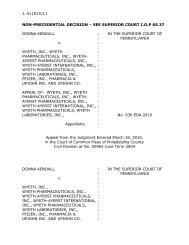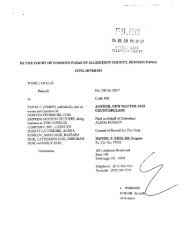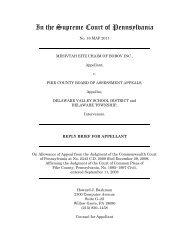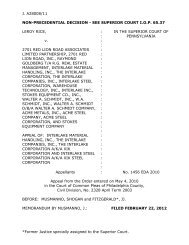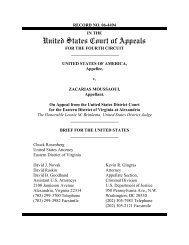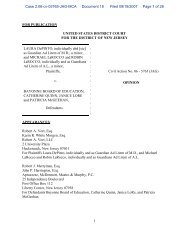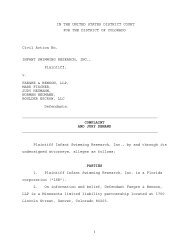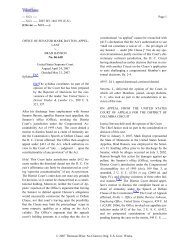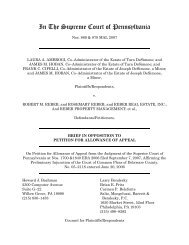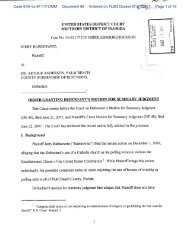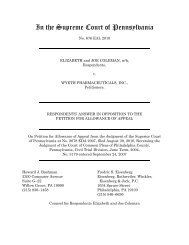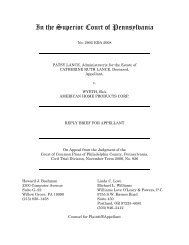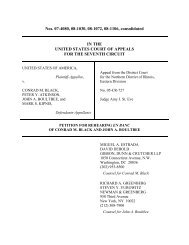Spiering v. Heineman - How Appealing - Law.com
Spiering v. Heineman - How Appealing - Law.com
Spiering v. Heineman - How Appealing - Law.com
You also want an ePaper? Increase the reach of your titles
YUMPU automatically turns print PDFs into web optimized ePapers that Google loves.
Case: 4:04-cv-03385-RGK-DLP Document #: 90 Date Filed: 09/12/2006 Page 4 of 23<br />
5. The oldest child was born in Minnesota and the <strong>Spiering</strong>s were allowed<br />
to opt out of testing based upon their religious beliefs. In contrast, and despite the<br />
fact that all states require some type of testing, Nebraska is one of the few states that<br />
do not allow an exemption for testing based upon religious grounds. 2<br />
6. The next two children were born in Nebraska. Although they would<br />
have preferred to wait seven days, through the help of their physician, the <strong>Spiering</strong>s<br />
were able to delay testing for these children for five days.<br />
7. The <strong>Spiering</strong>s’ fourth child was the original focal point of this litigation.<br />
When the <strong>Spiering</strong>s learned that their physician would no longer help them delay<br />
testing, and prior to the birth of their fourth child, they filed suit.<br />
8. On December 17, 2004, and presented with the impending birth of the<br />
fourth child, I granted a TRO prohibiting Nebraska from enforcing its then current<br />
regulations regarding metabolic testing against the <strong>Spiering</strong>s until the eighth day after<br />
the plaintiff’s fourth child was born. (Filing 8.) In that decision, I emphasized that<br />
“my mind may well be changed by a better developed record and briefing.” (Id. at 3.)<br />
Nonetheless, I was particularly concerned that Nebraska’s regulatory scheme, as then<br />
constituted, contained an odd quirk. If the child was born in a hospital, a blood draw<br />
for testing was required within 48 hours, but if the child was born at home, the blood<br />
draw could be <strong>com</strong>pleted seven to ten days after the child was born. Despite this<br />
difference, Nebraska refused to ac<strong>com</strong>modate the <strong>Spiering</strong>s’ desire to delay the<br />
testing of their infant for seven days. The practical result of Nebraska’s position was<br />
to force Mrs. <strong>Spiering</strong> to give birth at home rather than in a hospital if she desired to<br />
2 See Francy E. Foral, Necessity’s Sharp Pinch: Parental and States’ Rights in<br />
Conflict in an Era of Newborn Genetic Screening, 2 J. Health & Biomedical L. 109,<br />
111, 121 (2006) (all states mandate testing, but some have exemptions). According<br />
to this <strong>com</strong>mentator, Nebraska, Michigan, Minnesota, Montana and South Dakota do<br />
not provide a religious exemption. Id. at 121 n.82.<br />
-4-



